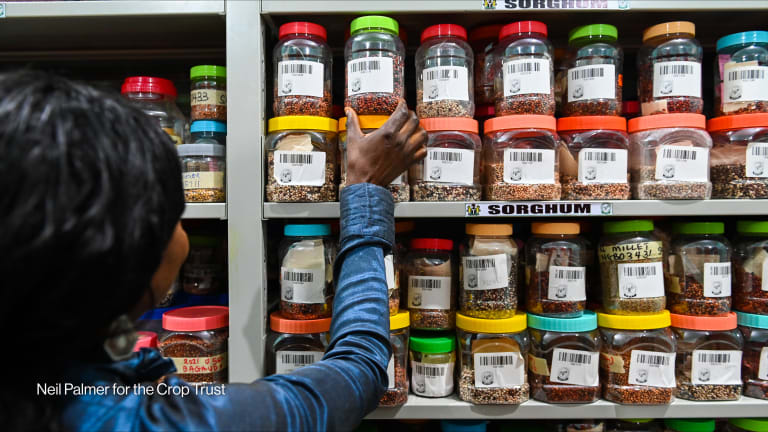
There is an interesting contradiction emerging in the international development community in the run-up to July’s third International Conference on Financing for Development in Addis Ababa, Ethiopia, and September’s U.N. General Assembly in New York, where member states are expected to adopt the new sustainable development goals.
On one hand, there is growing recognition of the value of more comprehensive programs that integrate interventions such as combining HIV and AIDS and reproductive health services, or nutrition and basic education, or women’s rights and income-generating activities. The planning for the goals has been accompanied by a growing chorus to adopt the common-sense use of integrated approaches.
On the other hand, progressive advocates, having been unable to persuade major donors to channel their funds through direct budget support, are pressing for greater use of multilateral funding mechanisms, à la the Global Fund to Fight AIDS, Tuberculosis and Malaria. Not only are these vertical funds believed to give more control to governments in least-developed countries or reduce the control of the donor governments, but they also garner support from the advocacy groups championing specific interests.
As a result, we are seeing a proliferation of these funds, such as the Global Partnership for Education Fund, established in 2002 and housed at the World Bank; the Global Innovation Fund, launched last September by Australia, Sweden, the United Kingdom and the United States in partnership with the Omidyar Network; and a new Global Financing Facility for reproductive, maternal, newborn, child and adolescent health, to be formally launched at the upcoming FfD conference in July.
These two currents — the call for more integrated programs and the desire to channel funds through vertical, single-sector or single-issue funding mechanisms — represent a kind of cognitive dissonance within the development community, because the more we put development resources into stovepiped mechanisms, the more difficult it will be to finance integrated programs.
Just as more comprehensive, integrated programs make sense for addressing human development needs, a diverse set of funding channels makes sense for financing development. The needs are so huge, the challenges so diverse and the environment so complex that having multiple funding channels better equips us to fashion the varied and tailored solutions needed to respond to policy issues that are typically not easily targeted by global funds dedicated to a single sector.
Ironically, there is an unusual alliance between anti-aid skeptics who view official development assistance as “money down a rat hole” that should be reduced or eliminated and progressive internationalists who want to limit the influence of donor governments in the name of empowering the global south. Both see greater use of multilateral funds as a means to their end.
But the truth is that, while bilateral aid can be stovepiped, when channeled through traditional agencies such as the U.S. Agency for International Development, Canada’s Department of Foreign Affairs Trade and Development, and the U.K. Department for International Development, bilateral assistance is far more effective in delivering tangible results than it is given credit for. And the progressives who are quick to champion evidence-based decision-making are loath to admit that multilateral mechanisms have a far more checkered track record than generally acknowledged.
The simple facts are that progress comes slowly when measured against donor demands for immediate results and managing public resources is subject to the panoply of human frailties. Any mechanism, whether an individual charitable donation or a bilateral or multilateral relationship, must contend with the potential for mismanagement, malfeasance, adverse political influence and unpredictable natural or man-made shocks. Putting all of our eggs in one basket only limits our options. And, the more concentrated our mechanisms are on single sectors or issues, the more difficult it will be to design comprehensive, integrated programs.
I hope that, in our quest for systems that respect the voice and agency of LDCs and provide greater predictability and management simplicity, we resist the impulse to corral development finance into a few globally managed funds. Global funds do have a role to play, but we need more than one tool in our tool box. Instead of taking ideological positions that view the competition for resources as a zero-sum game, let’s encourage delegates to this year’s big development conferences to endorse holistic approaches to development solutions and the diverse set of funding mechanisms needed to achieve that objective.
Join the Devex community and access more in-depth analysis, breaking news and business advice — and a host of other services — on international development, humanitarian aid and global health.








